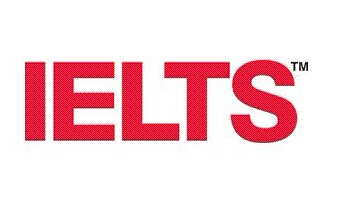雅思阅读素材:人类祖先并不聪明
2012-11-20 00:00 供稿单位: 互联网
出国英语考试有哪些 雅思6.5是什么水平 雅思阅读评分标准 托福阅读评分标准 雅思和托福的区别
想取得雅思阅读的高分,就需要海读,需要积累多方面的阅读素材,在阅读考试中,才能迅速的找到关键信息,把握好阅读的速度。今天我们整理了关于科技类的的雅思阅读素材,这篇雅思阅读材料的主要内容是介绍了对于人类祖先的大脑以及智力的研究等等。以下是详细内容,供同学们参考。
Ancestor of humans not so brainy
A monkey-like animal seen as an ancestor of monkeys, apes and humans was not as brainy(1) as expected, according to scientists who analyzed its nicely preserved 29-million-year-old skull.
The finding indicated that primate(2) brain enlargement evolved later than once thought, the researchers said on Monday.
They analyzed a remarkably well-preserved fossilized(3) skull of the little primate Aegyptopithecus(4) zeuxis, which lived in the trees and ate fruit and leaves about 29 million years ago in warm forests in what is now an Egyptian desert.
A technique called microcomputerized tomography(5) scanning —— a computerized X-ray method also called micro-CT —— allowed them to determine the dimensions of the animal's brain.
"What was astonishing is how small this brain is," Duke University primatologist Elwyn Simons, who led the study in the Proceedings of the National Academy of Sciences, said in a telephone interview.
"You can also see it's a pretty darn primitive brain. It would be small for a monkey or an ape," Simons added. "So it's telling us that the speed of achievement of brain enlargement in primates was a little slower than perhaps we had thought."
This skull of a small female was uncovered in a quarry(6) southwest of Cairo in 2004. It was better preserved than another skull of a larger male of the species found in the same area in 1966.
Based on earlier finds, scientists had theorized the species had a relatively large brain. Instead, it had a brain that might have been even smaller than that of a modern lemur, a primate with primitive traits.
Simons said that when this primate lived, Africa was an island, limiting the competition for survival. Simons said brain enlargement may have evolved in this lineage after Africa became connected to Asia, bringing in more animals including new and dangerous predators.
"Brain-volume enlargement is favored under conditions of competition because you need to be smarter," Simons said.
1. brainy:有头脑的,聪明的
2. primate:灵长类动物
3. fossilize:变成化石
4. aegyptopithecus:埃及猿
5. tomography:X线体层照相术,能够照出某确定物体上事先规定好的某层部分,而不会照下其它部分的像
6. quarry:采石场科学家对一个保存良好的2900万年前的头骨进行研究,发现这种类猴的猴子、猿和人类祖先并没有预想得那么聪明。
周一,研究人员们说此发现显示灵长类大脑进化时间比原来认为的要晚。
这个小巧的古埃及猿头骨化石保存十分完好。此种灵长类动物生活在2900万年前的温暖埃及丛林,以树为家,以果为食,但是现在这片丛林已经变成沙漠了。
一项被称为微型电子计算机X线断层扫描的技术可以帮助测算动物大脑尺寸,它也可被称为微CT.
杜克大学灵长类动物学家Elwyn Simons在电话采访中说:“我们很惊讶它的大脑竟然如此之小。” 由他负责的本次研究被刊登在美国国家科学院报中。
Simons说:“它虽然是一个灵长类头骨,但是比猴子或者猿的都要小。也就是说灵长类动物大脑的飞速发展比我们原来推算的要慢一点。”
这个小的女性头骨在2004年被发掘于开罗西南部一个采石场中。它的保存状况好于1966年在同一地点发现的另一个稍大的同类男性头骨。
根据之前的研究,科学家们推断这种动物应该拥有相对大的大脑。但是它的大脑却比具有原始特点的现代狐猴的还小。
Simons说这种动物生活的时候非洲还是一个岛屿,没有生存竞争。Simons认为他们的大脑发展发生在亚非大陆相连的时候,因为很多动物包括新的和危险的食肉动物都来到了这里。
他说:“竞争促进脑容量的扩展,因为你如果不变得更聪明就得死。”
以上就是关于人类祖先的大脑以及智力研究的雅思阅读材料的全部内容,非常详细的介绍了相关的话题,大家可以在备考雅思阅读考试和雅思小作文的时候,也可以对这篇文章进行适当的参考和阅读。
新航道国际教育集团提供专业的雅思培训、托福培训、GRE培训、SAT培训、剑桥青少英语培训等,为广大学子“开启英语成功之道”
- 上一篇:雅思阅读基本考点
- 下一篇:雅思阅读图表题答题方法

- 新航道,英语成功之道。时间获取新航道英语学习资料和新鲜资讯,请在微信公众账号中搜索「新航道英语」或者「xhdenglish」,或用手机扫描左方二维码,即可获得新航道每日精华内容推送和英语学习经验分享,并参与新航道举办的各项活动。
精彩专题
更多视频荟萃
更多
-
新航道姚骏鹏-雅思阅读高分攻略
时长:03-06

-
新航道陈侃侃-雅思口语要有范儿
时长:03-06

-
【3分钟学雅思】王大锤告诉你为啥药不能停
时长:01-12

-
【3分钟学雅思】全世界个感官餐厅
时长:01-12
热门文章
更多
-
8月31日雅思广州考机考初体验
选择机考模式的考生将通过机考模式参加听...








